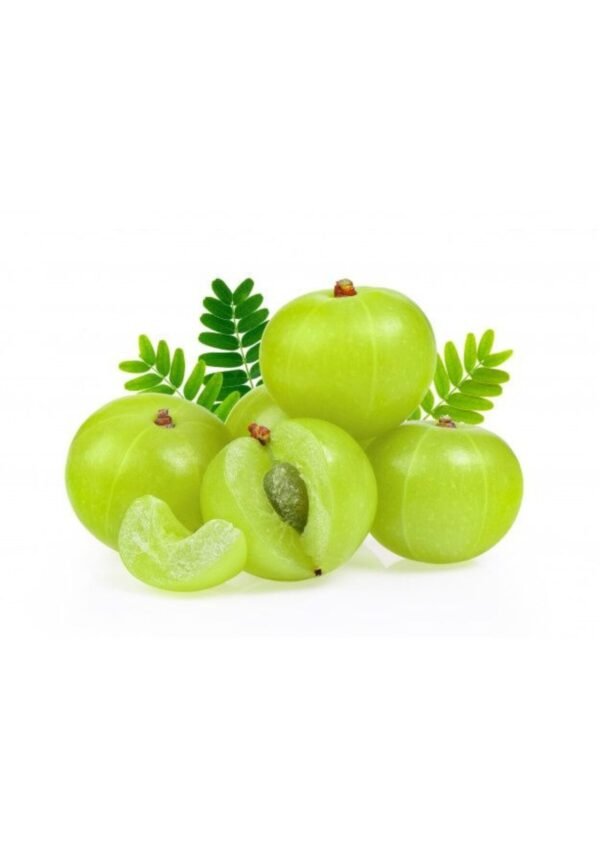Support: +0413 490 1050

Amla
Amla, also known as Indian Gooseberry, is a translucent green fruit renowned for its numerous health and medicinal benefits. The name “Amla” is derived from the Sanskrit word Amlaki, meaning “nectar of life,” highlighting its significance in traditional Indian medicine and wellness.
India is one of the leading producers of Amla, and Amla exporters in India ship large quantities of this superfruit to global markets each year. With rising awareness about natural health supplements and immunity-boosting foods, the export of Amla from India has seen consistent growth over the past few decades.
Amla is exported in various forms—fresh, dried, powdered, or as value-added products like juice and supplements—catering to diverse demands in international markets.
SPECIFICATION
| Product Name | Amla |
| Origin | Subtropical regions of India |
| Family | Phyllanthaceae |
| Binomial name | Phyllanthus emblica |
INGREDIENTS
| Nutrients | Calories 58 kcal, Total Carbohydrate 13.7 g, Dietary Fiber 3.4% |
| Minerals | Calcium, Iron, Carotene, Thiamine, Riboflavin, Nicene |
| Protein | 0.5% |
| Fat | 0.1% |
USES
> Culinary Amla is a rich source of Vitamin C. The vitamin C in amla is absorbed more easily by the body compared to store-bought supplements.
> Culinary Amla is also said to be good for your eye health. Research states that the carotene in amla improves vision.
> Culinary Amla also builds immunity. Amla’s antibacterial and astringent characteristics are useful to boost one’s immune system.
> Culinary Amla is also a great tonic for hair. It slows down greying, prevents dandruff, strengthens hair follicles, and increases blood circulation to the scalp.





